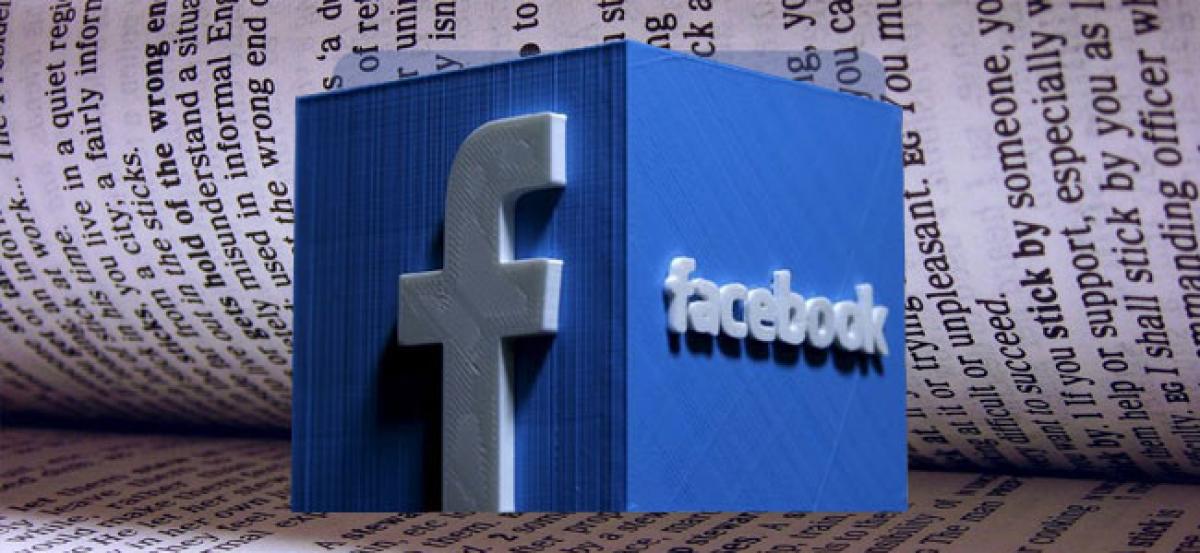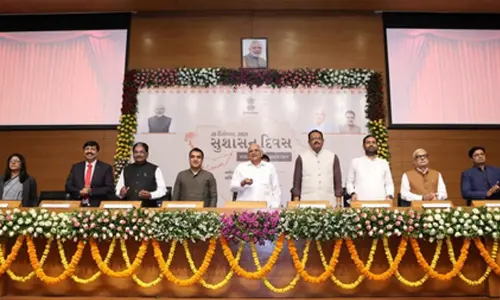10 Facebook coined terms that changed English language forever

Long before Facebook made its way into our lives, nobody would even imagine that we could ‘friend’ or ‘unfriend’ somebody according to our whims and fancies. We would often share our books or CDs with our friends but we would never ‘share’ intimate tidbits of our daily lives,
Long before Facebook made its way into our lives, nobody would even imagine that we could ‘friend’ or ‘unfriend’ somebody according to our whims and fancies. We would often share our books or CDs with our friends but we would never ‘share’ intimate tidbits of our daily lives, such as the time we got up from bed or the moment we felt hungry, with people we’ve barely known or interacted with.
No one can deny the role social media plays to influence our lives; that includes the way we make our daily conversations. Since its birth in 2004, Facebook has incorporated several terms and phrases that have become an inseparable part of our daily lexicon. Most of these are common words but were refitted to give new meanings. Some of them were forgotten but a few have stuck on, finding a place even in dictionaries.
Here are 10 such terms that Facebook coined to change way we look at the English language today.
Friend
In the real world, you may have just a friend or two with whom you share your joys and sorrows on a regular basis, but on Facebook, it’s not uncommon to have 683 or 1,024 ‘friends’. After all, you just ‘search’ for an acquaintance’s name so that you can ‘add’ him or her and hoard them like poker chips. No problem if he or she is a rarely seen co-worker, a distant relative or a vaguely remembered student from school. It’s cool to have lots of ‘friends’.
Unfriend
Okay, so if you have 1,024 ‘friends’ on Facebook, you are also bound to have people who annoy you or whom you simply get tired of. What do you do then? You ‘unfriend’ him. By adding an ‘unfriend’ option, Facebook created new shorthand for aborting a friendship or an acquaintance. Isn’t it easier to say ‘I unfriended Vipul’ than ‘I’m not going to be friends with Vipul anymore because he irritates me with his daily comments about politics’? No wonder, ‘unfriend’ was chosen as the ‘Word of the Year’ by the New Oxford English Dictionary in 2009.
Status
Before Facebook happened, you would measure a person’s social or professional standing by his or her ‘status’. Today, your friend’s ‘status’ gives you updates about their thoughts or activities, like how he or she is feeling today or which five-star property he or she has checked into. Suddenly, updating one’s status meant more than just moving to a posher neighbourhood or buying a luxury car.
Like
Your ‘friend’ has ‘posted’ a new photo or ‘status’ and you want to endorse it. No problem, just ‘like’ it. Do you more than ‘like’ it? No problem there either, just ‘react’ to it, whether you ‘love’ it or find it ‘wow’. Since the ‘like’ button debuted on Facebook in 2009, it has been the subject of much discussion with critics even asking for a ‘dislike’ button to protest the social networking site’s forced cheerfulness. Although this demand was never met, in 2016 however, Facebook founder Mark Zuckerberg somehow seemed to finally concede that every post cannot be likable by introducing five new ‘reactions’ as an extension to the ‘like’ button.
Today, the ‘like’ feature is not just taken as a tool but also as a barometer of one’s popularity. So how many ‘likes’ have you got so far?
Share
Back in the pre-Facebook era, when our friends wanted to listen to some music that they didn’t have, we would share our CDs. Then came Facebook, and we started ‘sharing’ almost everything under the sun. We did that even we were not too generous. Found somebody’s post funny, share it. Read an interesting article, share it. We just had to ‘share’ it, with everyone and right now!
Wall
Earlier, we would be discouraged to write or scribble on somebody's boundary wall, but on Facebook, we are not only encouraged but are actually tempted to check on the 'wall' to see what's happening in the world. Although it never really caught on (in 2011, Facebook replaced the Wall with the current Timeline format, which displays updates chronologically), it brought in a new wave of social networking.
Comment
Earlier, you would comment on any issue or political statement that you felt strongly about. Today, you can do that on almost anything, whether it’s your friend’s photo or a birthday wish. On Facebook, you can do even with GIFs or on colourful backgrounds. Time to get expressive, isn’t it?
It’s complicated
You were ‘single’ or married, but Facebook gave a new outlet to your predicament if you didn’t fall into any of the two statuses. The ambiguous answer ‘It’s complicated’ to Facebook’s ‘What's your relationship status?’ has now become an inseparable part of pop culture, so much so that it inspired a 2009 Hollywood romantic comedy with Meryl Streep.
Poke
Although this feature is not much used these days, it raised quite a few eyebrows in its early days. Nobody, including Mark Zuckerberg (he thought it would be cool to have a feature without any specific purpose), knew what it was for; some saw it as a flirty invitation to an online chat or a real-world dating adventure. But amazingly, you can still ‘poke’ somebody on Facebook.
Tag
Your ‘friend’ appears in one of the photos or updates that you’ve posted on Facebook; just ‘tag’ him or her. If he or she doesn’t, well, never mind; you can still ‘tag’ him or her. After all, you want more people to notice your posts, don’t you, even at the cost of being labelled as ‘irritating’? Maybe ‘tag’ is the new way to ‘poke’.
Source: techgig.com













